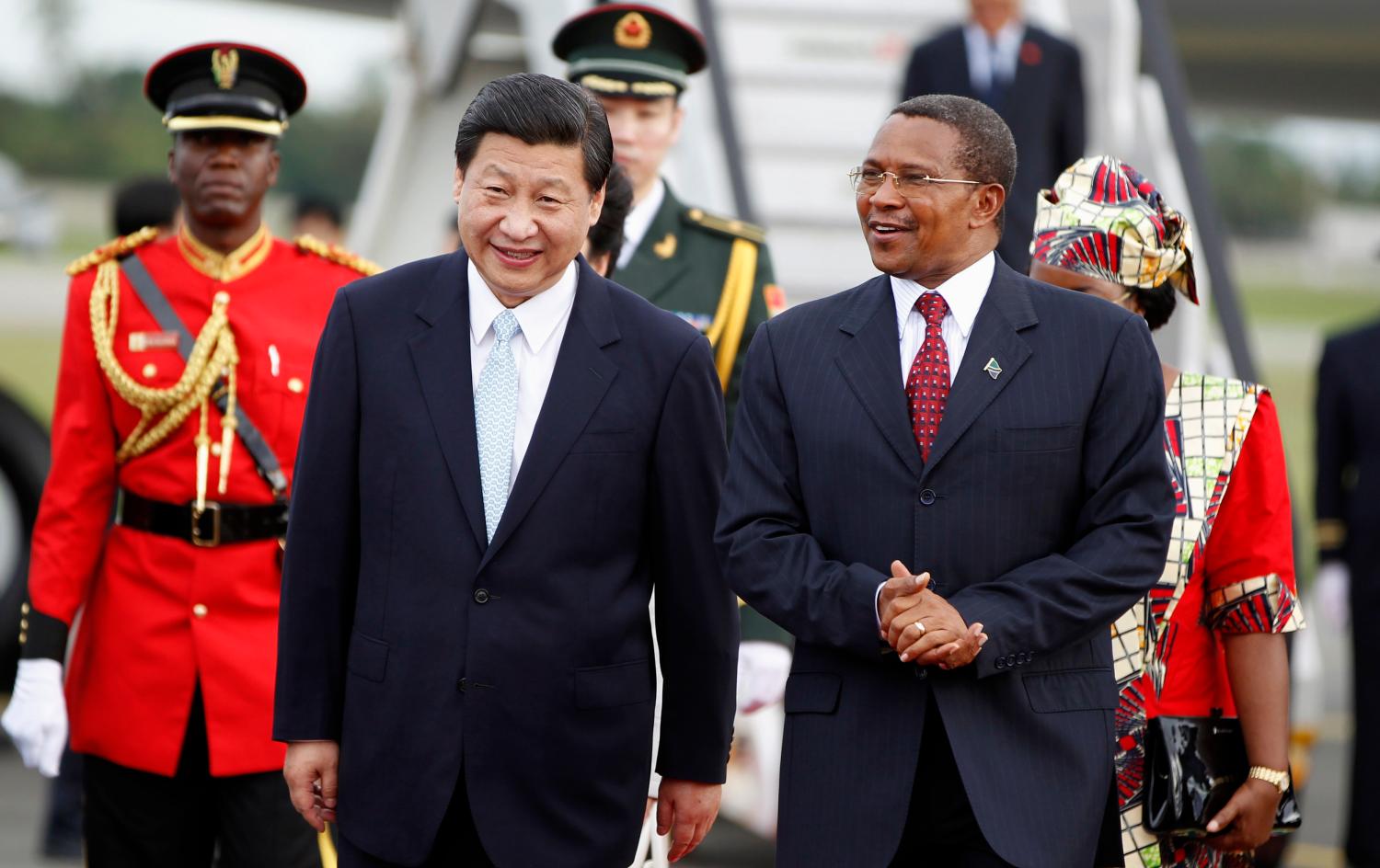During the past decade, China’s rapidly
growing presence in Africa has increasingly
become a topic for debate in the
international media and among economists and
policy analysts. While China’s unique economic
approach to Africa meets the African countries’
need for funding and infrastructure projects, the
model has been widely criticized. In particular,
China’s natural resource-backed loans raise questions
about the continent’s future and its capacity
for sustainable development.
Studies of China’s Africa strategy (or lack thereof) have been overwhelmingly focused on China’s
economic interests in Africa, the role played by
Chinese government and companies, and the economic
and social impacts of such activities on the
ground. With a few exceptions, there is a strong
tendency to assert moral judgments in the assessment:
China’s activities in Africa are often characterized
as “evil” when they are seen as representing
China’s selfish quest for natural resources and damaging
Africa’s fragile efforts to improve governance
and build a sustainable future. However, they are
characterized as “virtuous” when they are seen as
contributing to a foundation for long-term economic
development through infrastructure projects
and revenue creation.
While economic issues are important to the strategic
positioning of Africa in China’s overall foreign
policy, Africa’s broader role in China’s international
agenda is yet to be thoroughly explored. As China
becomes a global economic and political power, a
simplistic perception of Africa as China’s supplier
of raw materials inevitably neglects other key
aspects of Africa within China’s global strategy.
Furthermore, even as China’s goals and policies
have become more diversified, little effort has been
spent examining China’s internal bureaucratic processes
by which political, economic and security
decisions are made regarding its Africa policy. This
paper seeks to examine these largely unexamined
basic, internal elements of China’s Africa policy.
China seeks to satisfy four broad national interests
in its relations with the continent. Politically,
China seeks Africa’s support for China’s “One
China” policy and for its foreign policy agendas in
multilateral forums such as the United Nations.
Economically, Africa is seen primarily as a source
of natural resources and market opportunities to
fuel China’s domestic growth. From a security
standpoint, the rising presence of Chinese commercial
interests in Africa has led to growing security
challenges for China, as the safety of Chinese
investments and personnel come under threats
due to political instability and criminal activities
on the ground. Last but not least, China also sees
an underlying ideological interest in Africa, as the
success of the “China model” in non-democratic
African countries offers indirect support for China’s
own political ideology and offers evidence that
Western democratic ideals are not universal.
In reality, Africa accounts for only a tiny percentage of China’s overall foreign economic activities: China’s investment in and trade with Africa represents 3 percent and 5 percent of its global investment and trade respectively.
The popular focus on China’s vast economic endeavors
in Africa (especially in the extractive industries)
seems to suggest that Africa is somehow
“critical” for China. In reality, Africa accounts
for only a tiny percentage of China’s overall foreign
economic activities: China’s investment in
and trade with Africa represents 3 percent and 5
percent of its global investment and trade, respectively.
Politically, the continent is of small importance
to China’s foreign policy agenda, with Africa
playing a largely supportive role in China’s overall
international strategy. Rather than being seen as
“key” or a “priority,” Africa is seen to be part of the
“foundation” on which China’s broader strategic
ambitions are built. Compared with the “struggle”
with big powers or China’s strenuous relationship
with its neighbors, Sino-African relations have
been relatively smooth and free of major disturbances,
thanks to a shared sense of historical victimization
by Western colonial powers and a common
identity/affinity as developing countries. The
nature of Sino-African ties is largely transactional
and reciprocal.
Given the general low priority of Africa in China’s
foreign policy agenda, Africa issues rarely
reach the highest level of foreign policy decision
making in the Chinese bureaucratic apparatus. In
practice, policymaking specific to Africa happens
mostly at the working level and is divided among
several government agencies, with the Ministry of
Foreign Affairs (MFA) and the Ministry of Commerce
(MOFCOM) taking the lead on political
affairs and economic affairs, respectively. On security
issues such as U.N. peacekeeping operations,
naval escort missions and evacuation missions, the
Chinese military plays a significant role in coordination
with MFA and MOFCOM. On issues
under the mandate of specific government agencies,
such as Chinese medical, agricultural or technical
assistance to Africa, the policy is coordinated
among MFA, MOFCOM and the agency directly
involved.
China’s Africa strategy is not free of problems or
controversies. The most vocal criticism inside the
Chinese policy community is that China fundamentally
lacks an Africa strategy and commercial
interests have overtaken (and even undercut) other
national interests. There is a constant tension between
the narrow, mercantilist pursuit of economic
interests in Africa and that pursuit’s impact on
the overall health of the Sino-African relationship
and China’s international image. Bureaucratically,
this partly contributes to the abrasive competition
between MFA and MOFCOM for the leading role
in China’s policy toward Africa. This conflict is
most evident on the issue of China’s foreign aid
to Africa.
Meanwhile, the proliferation of China’s commercial
actors in Africa in recent years has made government
supervision and management particularly
challenging. Beijing’s inability to cope with the
rapidly expanding Chinese presence in Africa is
exacerbated by the lack of political risk assessment
and the absence of a comprehensive commercial
strategy for Africa. The resolution of these issues
will determine the nature and content of China’s
future policy toward Africa while exerting critical
influence over the future development of the continent.
The Brookings Institution is committed to quality, independence, and impact.
We are supported by a diverse array of funders. In line with our values and policies, each Brookings publication represents the sole views of its author(s).





